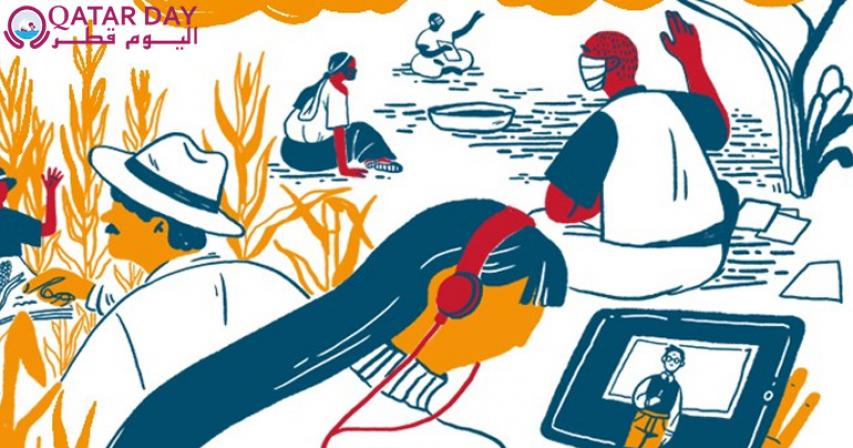This year’s Literacy Day reflected on innovative and effective pedagogies that can be used in youth and adult literacy programmes to face the pandemic and beyond.
Yesterday, the United Nations marked International Literacy Day (ILD) — “to remind the international community of the importance of literacy for individuals, communities and societies, and the need for intensified efforts towards more literate societies.”
The theme for ILD 2020 was “Literacy teaching and learning in the
COVID-19 crisis and beyond”.
This year ILD reflected on the innovative and effective pedagogies that can be used in youth and adult literacy programmes to face the pandemic and beyond.
The day aims at raising awareness and reminding people of the importance of literacy as a matter of dignity and human rights.
UNESCO has stated: “During Covid-19, in many countries, adult literacy programmes were absent in the initial education response plans, so the majority of adult literacy programmes that did exist were suspended with just a few courses continuing virtually, through TV and radio, or in open air spaces.”
Audrey Azoulay, UNESCO Director General, said on the occasion, "At a time when we need to reinvent a world of hope, literacy is more important than ever. On this International Day, I thus invite all those involved in education to redouble their investments and mobilize all their resources to unleash the potential of each individual in the service of a shared world.”
UNESCO proclaimed September 8 as International Literacy Day at its General Conference in 1966, which stated, “The hundreds of millions of illiterate adults still existing in the world, make it essential to change national education policies.”
It emphasised the need for the real emancipation of the people and added that education systems across the world should provide the training required for children and working adults so that they can learn to read and write.
Following the UNESCO General conference, the first International Literacy Day was celebrated on September 8, 1967.
Since then, ILD celebrations have taken place annually around the world to remind the public of the importance of literacy as a matter of dignity and human rights, and to advance the literacy agenda towards a more literate and sustainable society.
Despite progress made, literacy challenges persist with at least 773 million adults worldwide lacking basic literacy skills today.
The theme highlighted literacy learning in a lifelong learning perspective and therefore mainly focus on youth and adults.
The recent Covid-19 crisis has been a stark reminder of the existing gap between policy discourse and reality: a gap that already existed in the pre-Covid-19 era and is negatively affecting the learning of youth and adults who have no or low literacy skills and therefore tend to face multiple disadvantages.
During Covid-19, in many countries, adult literacy programmes were absent in the initial education response plans, so the majority of adult literacy programmes that did exist were suspended with just a few courses continuing virtually, through TV and radio, or in open air spaces.
What is the impact of the Covid-19 crisis on youth and adult literacy educators and teaching and learning? What are the lessons learnt? How can we effectively position youth and adult literacy learning in global and national responses and in strategies for the recovery and resilience-building phase?
By exploring these questions, ILD 2020 provided an opportunity to reflect on and discuss how innovative and effective pedagogies and teaching methodologies can be used in youth and adult literacy programmes to face the pandemic and beyond.
Through a virtual conference, UNESCO initiated a collective global discussion to reimagine the literacy teaching and learning of youth and adults in the post-Covid-19 era towards the achievement of the SDG4.
The ILD also gave an opportunity to analyse the role of educators, as well as effective policies, systems, governance and measures that can support educators and learning.

Comments